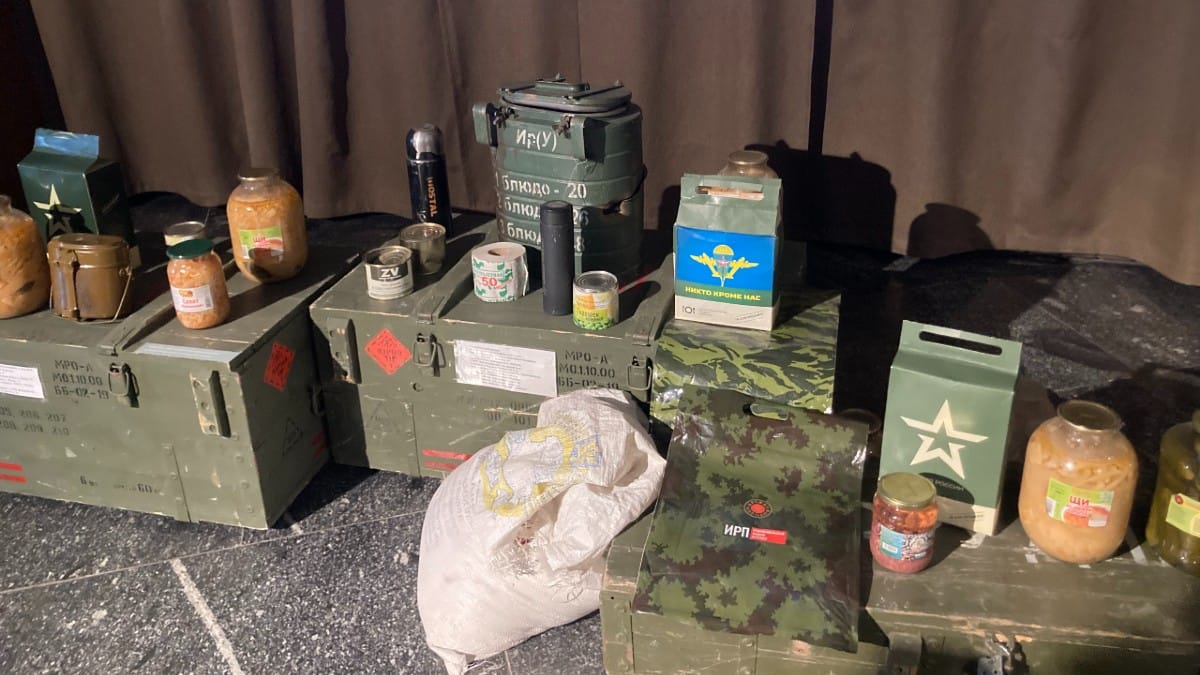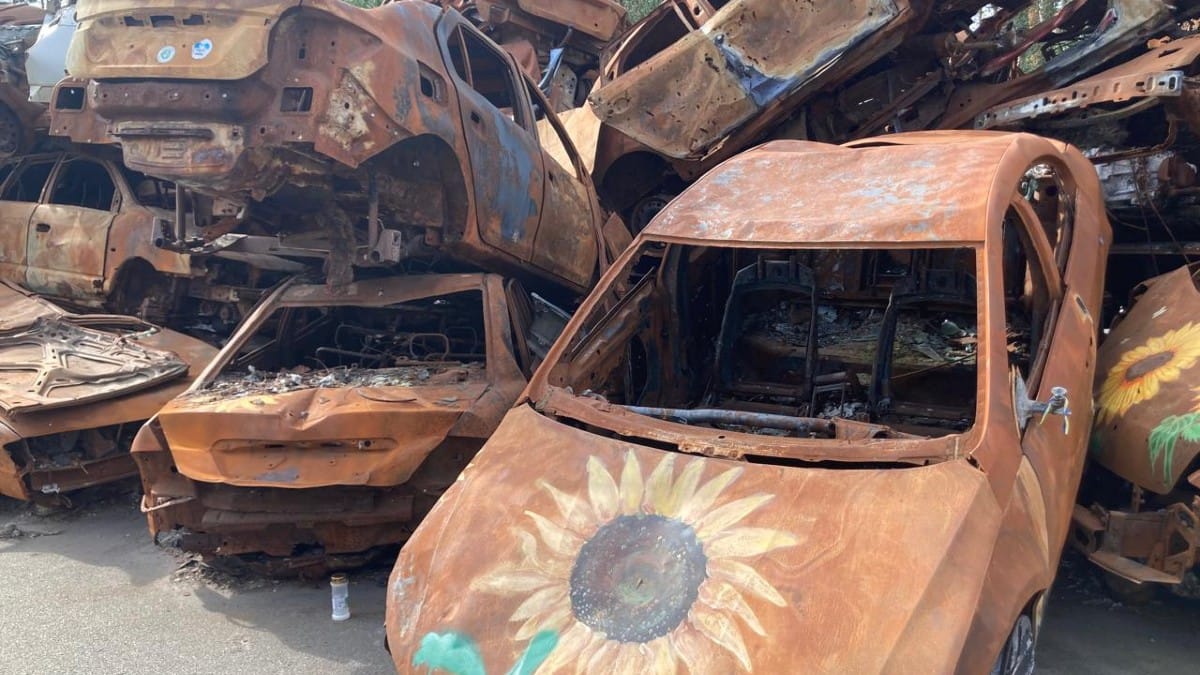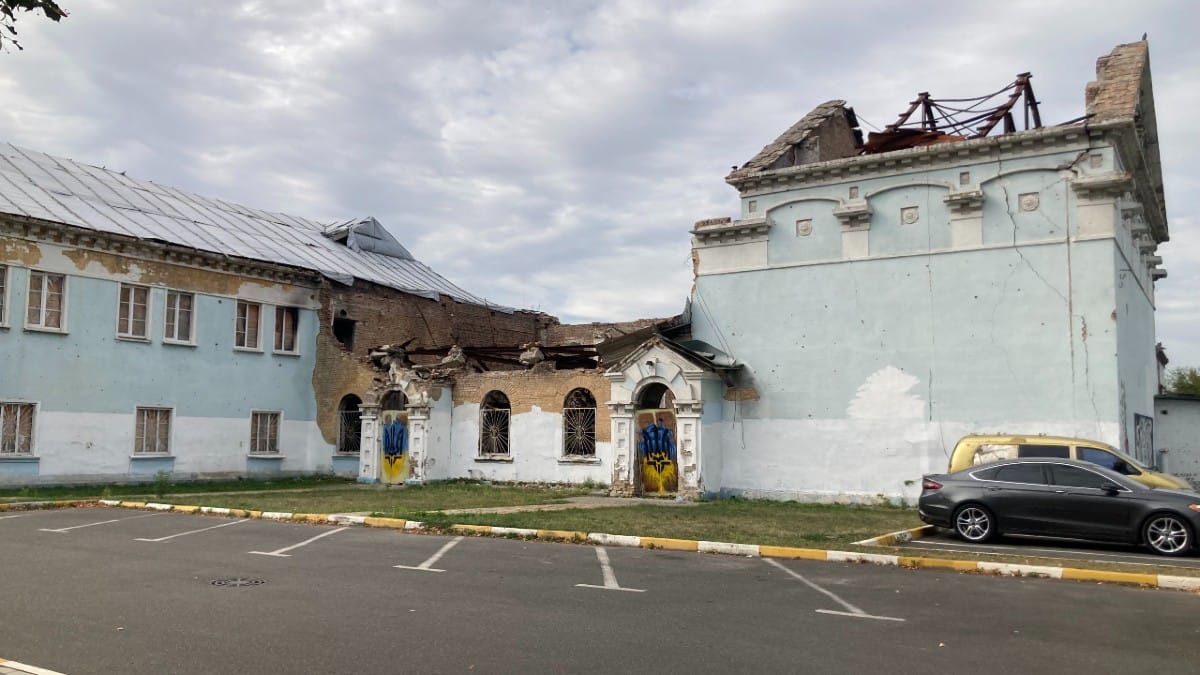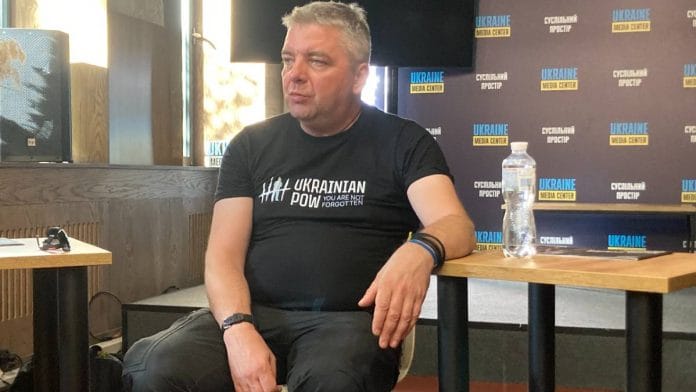Kyiv: From assisting refugees and internally displaced persons fleeing their homes, known anti-militarist Maksim Butkevych picked up arms to defend the very rights he had fought for, following the outbreak of war with Russia in February 2022.
The famed Ukrainian human rights defender took up arms to defend Ukraine’s rights and was eventually captured by Russian authorities in eastern Ukraine and held as a prisoner of war (PoW) till October 2024.
“If I am serious about defending human rights, I could do so only through the means available to me (and at the time) it was by taking up arms. I took up Kalashnikovs to defend human rights,” Butkevych lamented with a smile, while interacting with journalists in Kyiv last week.
Butkevych, who in the past had raised protests against prison conditions in Ukraine, found himself in jail for two years and four months, starting June 2022. He was convicted of war crimes by Russian authorities in March 2023 and sentenced to 13 years in prison. He was eventually released in October 2024 during a prisoner exchange between Moscow and Kyiv.

Butkevych has denied charges that he injured civilians on the frontlines, highlighting that he was in a very different location at the time, a fact ignored by the courts. “A month after (being captured), they (Russian authorities) fabricated a criminal case against me. I confessed to my crimes. The confession was extracted under torture. There were beatings and threats,” he explained.
Highlighting the process, the former prisoner of war said he was given two options: confess and return to your country as part of a prisoner exchange soon or “they will kill me” and frame it as an attempted escape from prison. “The other option they highlighted would be imprisoning me with other people who are cooperating with the (Russian) government, ensuring I would never leave prison sane,” Butkevych said.
A contributor to the BBC and Ukrainian news channels, Butkevych has had a brush with Russian authorities in the past. In 2006, he was detained by Russian authorities while attempting to photograph a protest during the G8 summit held at St Petersburg.
From frontlines to prisoner of war
As Russian tanks rolled down the streets of Bucha, Irpin and other towns surrounding the Ukrainian capital of Kyiv in late February 2022, Butkevych, who had received military training decades ago as part of the draft system in the erstwhile Soviet Union, signed up for the Armed Forces of Ukraine.

He said he led a unit located in the Kyiv region in the months of March and April 2022, towards the direction of Bucha. As an officer, Butkevych along with the rest of his platoon were transferred to the east of Ukraine later on.
On 21 June, 2022, Butkevych and eight others were captured by Russian soldiers. Explaining how, the former Ukrainian soldier said: “The area was encircled. Eight subordinates and I were moved to an observation point. Very soon our radios were jammed.”

“It was a hot summer day that left us dehydrated. We got word on our radios from a Ukrainian soldier that the area was not fully encircled and there was still a way out. However, it was a trap. The soldier leading us was already captured by the Russians the day before and was forced to tell us this (information),” he said.
Sentenced for ‘war crimes’
Prisoners of war (PoWs) are given certain protections under international law, specifically the Third Geneva Convention regarding their treatment. However, Butkevych pointed out the Geneva conventions were brought up only twice during his time as PoW—the day he was captured and later in Russian courts when he was accused of violating war rules.
“In March 2023, a Russian court sentenced me for 13 years for war crimes. I was sentenced in the name of Russia,” said the former Ukrainian soldier. However, he appealed the sentence through the Court of Appeal as well as the Court of Cassation.
Butkevych received support from fellow human rights activists in Russia throughout the legal proceedings, activists with whom he had had ties for a number of years.
“They (friends in Russia) hired a human rights lawyer to appeal my conviction, including in the Court of Appeal and the Court of Cassation. My friends physically came to the hearing, while I appeared via video link. They sent me letters and tried to support me,” he said.
The accusations against Butkevych revolved around an attempt to kill two civilians in the Donetsk region using German-made RPGs. The only proof before the court was his confession, as he was in Kyiv and not in the part of eastern Ukraine where the alleged crime took place.
The hearing lasted for two days, as Butkevych jokingly pointed out that the oral and written testimonies given by the victims differed, which required a correction that resulted in extension of the case for an extra day.
Butkevych was sent to a penal colony in the East of Luhansk province. Recounting his time there, he said he lost over 30 kg before he was released on 18 October, 2024. The prisoners exchanged the same day as Butkevych were taken to Belarus, before being brought by road to the Ukrainian border.
In a twist of irony, Butkevych’s time as a convicted war criminal in prison was far lighter than the months preceded his sentencing. Before his conviction, he explained the strict regime he faced in prison: little basic care was provided, from toothbrushes to toilet paper.
“I was quite fortunate, to be pretty honest. I was exchanged. Most people I spent time with in captivity, most are Ukrainians … I was beaten a few times, I was threatened with electric shocks and sexual violence. However, I met people who were actually tortured far worse while in captivity,” he said. After being moved to a different section of the prison following his conviction, he had access to a television and was no longer forced to sing the Russian national anthem. The worst he faced was in his early days in a section where the PoWs were kept, he said. Following his exchange, Butkevych left the Ukrainian armed forces.
The reporter was in Ukraine on invitation from the NGO Internews Ukraine.
(Edited by Nida Fatima Siddiqui)
Also Read: War expanding? Trump says Kyiv can ‘win all of Ukraine’ back from Russia with NATO support






